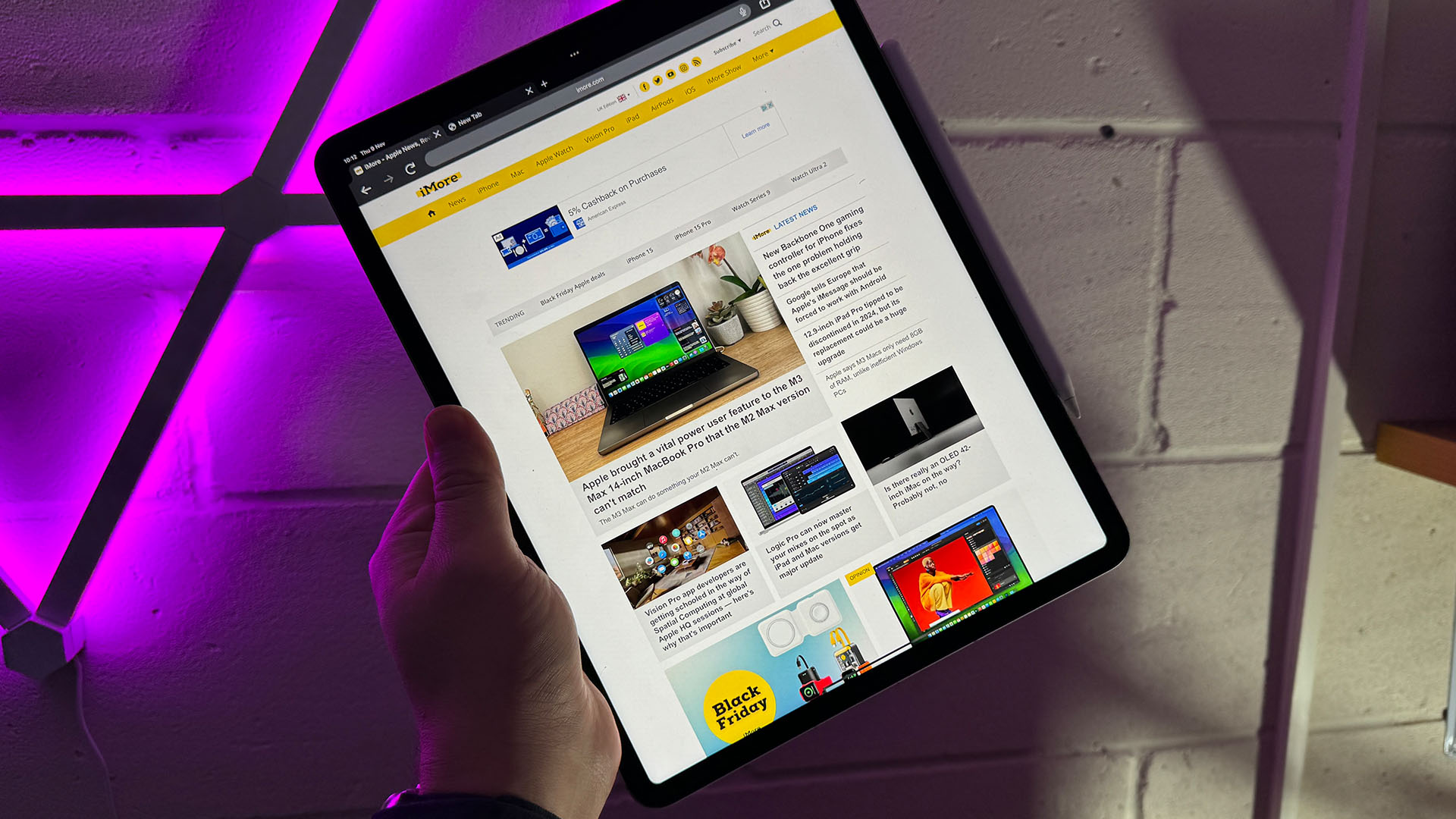The 11-inch OLED iPad Pro's availability might be stymied by Samsung Display's quality issues
The 11-inch tablet might be harder to come by.

iMore offers spot-on advice and guidance from our team of experts, with decades of Apple device experience to lean on. Learn more with iMore!
You are now subscribed
Your newsletter sign-up was successful
Apple's long been rumored to be finally ready to launch a new iPad after shipping not a single new tablet throughout the entirety of 2023. The iPad Air is expected to be refreshed soon with the OLED iPad Pro joining it. A report yesterday claimed that Apple intends to unveil all four new tablets in early May, and now another report adds some color to previous claims that the availability of the smaller 11-inch OLED iPad Pro might be somewhat stunted.
We'd previously heard from display analyst Ross Young that Apple's 11-inch iPad Pro appeared to be behind in terms of manufacturing, while the 12.9-inch iPad Pro was thought to be steaming ahead. Now, a new report might have explained why the disparity in manufacturing came about.
While we'd already heard that LG Display had swooped in to pick up some of the slack with Samsung Display struggling to keep up with Apple's needs, a new report now claims that the issue all stems from the latter's inability to produce displays to meet exacting quality standards. Samsung Display is no stranger to producing OLED displays of course, but it's thought that it's struggled this time around.
LG to the rescue
This is all according to a Hankooki report spotted by MacRumors which claims that LG Display has had to come to Apple's rescue.
"Contrary to observations, the specific background behind LG Display's sudden mass production of 11-inch panels this month is unknown," the Hankooki report explains via machine translation. "However, some are pointing out that Samsung Display is unable to meet the required quantity due to 11-inch panel yield issues."
The report goes on to say that "LG Display has accumulated experience in mass production of panels larger than the iPhone by supplying liquid crystal display (LCD) panels to iMac, MacBook, and iPad."
As a result of the switch-up it is now thought that LG Display will wind up producing around 60% of the OLED iPad Pro displays with the market expecting iPad Pro shipments of up to nine million units this year. It was originally thought that LG Display and Samsung Display would share the orders evenly.
iMore offers spot-on advice and guidance from our team of experts, with decades of Apple device experience to lean on. Learn more with iMore!
The new OLED iPad Pros are expected to be powered by Apple's fast M3 chip while rumors have also suggested that Apple will move the tablets' FaceTime selfie camera to the side of the display rather than at the top of it. The switch will make for a better experience when placing video calls with the tablet in landscape mode — important if users have the tablet docked to a keyboard and trackpad.
Apple is already expected to have a revamped Magic Keyboard device in the works with a more sturdy construction improving upon the previous iterations.
The OLED iPad Pro is expected to come in 11- and 12.9-inch configurations while the 11-inch 6th-gen iPad Air is expected to be joined by an all-new 12.9-inch model. The iPad Air tablets are expected to use the slower M2 chips, although the difference will be negligible for the majority of people with the tablets also expected to feature the same FaceTime camera relocation, too.
Finally, Apple is also expected to unveil the Apple Pencil 3 at the same time as the new tablets and Magic Keyboard, potentially with Apple Vision Pro support.
More from iMore

Oliver Haslam has written about Apple and the wider technology business for more than a decade with bylines on How-To Geek, PC Mag, iDownloadBlog, and many more. He has also been published in print for Macworld, including cover stories. At iMore, Oliver is involved in daily news coverage and, not being short of opinions, has been known to 'explain' those thoughts in more detail, too.
Having grown up using PCs and spending far too much money on graphics card and flashy RAM, Oliver switched to the Mac with a G5 iMac and hasn't looked back. Since then he's seen the growth of the smartphone world, backed by iPhone, and new product categories come and go. Current expertise includes iOS, macOS, streaming services, and pretty much anything that has a battery or plugs into a wall. Oliver also covers mobile gaming for iMore, with Apple Arcade a particular focus. He's been gaming since the Atari 2600 days and still struggles to comprehend the fact he can play console quality titles on his pocket computer.
